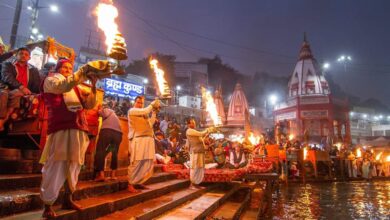प्रियंका मेहेर ।
प्रदेश का एक जाना पहचाना नाम जिनके अनेकों गानों पर उत्तराखंड के लगभग हर युवा साथी का पैर थिरका होगा ।
अपनी आवाज से उत्तराखंड ही नही पूरे देश भर में एक अलग पहचान बनाने वाली प्रियंका के बारे में कौन नही जानता ।
आज प्रियंका सुर्खियों में हैं क्योंकि उनका एक गाना स्वामी जी प्लीज की एक लाइन ” उर्गम के कस्से में दगड़ियों संग फूल नशे में ” विवादित बन गया जब ब्लॉक प्रमुख जोशीमठ श्री अनूप सिंह नेगी जी ने प्रियंका को लीगल नोटिस भेज दिया इस लाइन के लिए ।
वैसे हमारा मकसद कभी किसी की भावना को ठेस पहुंचाना नही रहता और उर्गम एक देवस्थल है जहां से हर रास्ता किसी धाम की यात्रा को पूरा करता है ।
पर सोचनीय यह है कि केवल एक लाइन ” दगड़ियों संग फूल नशे में ” केवल शराब या किसी सूखे नशे को ही प्रोमोट कर सकता है ?
हमारे माननीय ब्लॉक प्रमुख जी ने आवाज उठाई हमें गर्व है उनपर की वे नशे के खिलाफ हैं तो क्या जोशीमठ क्षेत्र में किसी भी प्रकार के नशीले पदार्थ की बिक्री पर रोक है या इसे हम केवल पोलिटिकल स्टंट समझें या ये कहें की नाम कमाने का अवसर प्राप्त हुआ तो बहती नदी में छलांग लगाने का यह केवल प्रयास मात्र था ।
और हमारा सवाल हर उस मीडिया बन्धु से भी है जिनको अपनी TRP के अलावा कुछ नजर नही आता – क्या आपको एक बार नही दिखा की जिस नोटिस को आप सरेआम अपने चैनल पर चला रहे हैं उसपर एक बहन एक बेटी का पता और नम्बर भी लिखा है उसे छिपा लिया जाएं । अब कोई मनचला प्रियंका के घर आ धमके या उन्हें कॉल करके परेशान करें तो कार्यवाही किस पर करनी चाहिए – उस मनचले पर या आप जैसे मीडिया कर्मियों पर ।
और बहन अधिवक्ता सुरभि शाह जी आपने भी नही सोचा कि आप लीगल नोटिस मीडिया को सौंप रही हैं तो उंगली आप पर भी उठ सकती है कि आप खुद एक महिला होकर कैसे किसी दूसरी महिला या लड़की का दर्द नही समझी और आपने पता और नम्बर सार्वजनिक करवा दिया ।
गाने में गलती रही होगी हम उसके समर्थन में हैं पर आप भूल जाओ एक बार के लिए की प्रियंका कौन है और जरा सोचो कि कभी कोई आपकी बहन आपकी बेटी का नम्बर सार्वजनिक कर दें और कोई मनचला उपद्रवी उसे परेशान करें तो आपके दिल पर किसी ठेस लगेगी ।
क्योंकि जनता से बड़ा न्यायाधीश कोई नही होता !!




